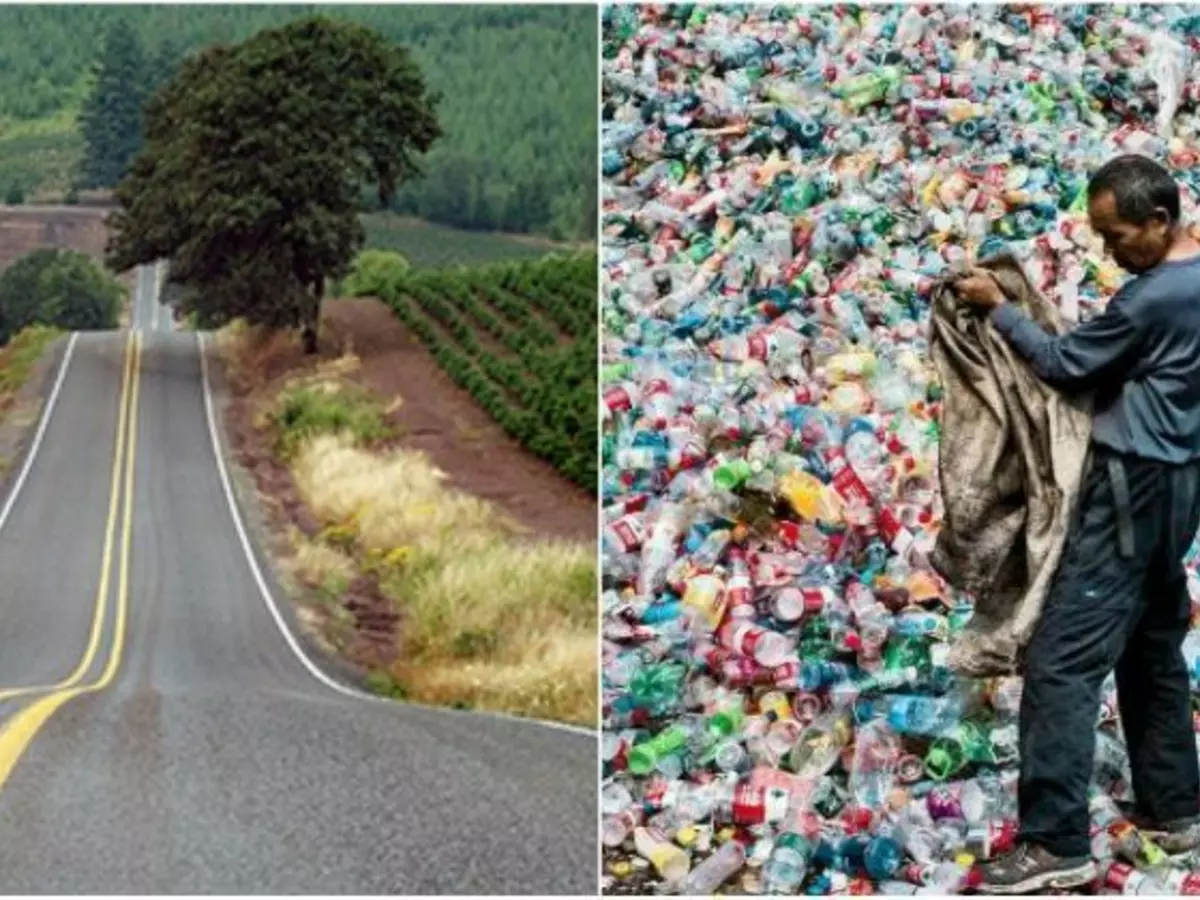A Village In North-East Is Building Roads From Plastic, Using 430 Kilos Per Kilometre
Rajagopalan Vasudevan a Chemistry professor from Madurai&rsquos Thiagarajar College of Engineering has developed an idea where one can finely shred plastic and use it to build roads. The shredded plastic is mixed with a mixture of bituminous concrete and then incorporated in the regular process.

A sperm whale was recently found dead after it swallowed 64 pounds of plastic debris, on the shores of Mexico. So it's only a matter of a few years before we too, fall prey to the disasters we have conjured out of all things good.

toi
I bet you didn't know that it takes over 1,000 years for an item made of plastic to decompose itself, completely. After all, this would have served as an excuse for your excessive use. In the same league, India is generating as much as 56 lakh tonnes of plastic waste annually, so who is really working on that?
Not me. Not you.
But Rajagopalan Vasudevan, a Chemistry professor from Madurai's Thiagarajar College of Engineering is. To fight from this plastic menace, Vasudevan has developed an idea where one can finely shred plastic and use it to build roads.
The shredded plastic is mixed with a mixture of bituminous concrete and then incorporated in the regular process. As much as 10-30 of bituminous concrete ( tar) can be replaced with plastic.
Following in the footsteps of Vasudevan, Nongkynjang village, West Khasi Hills incorporated the same. The local administration collected all the plastic waste from the village and began making roads.
"We have already consumed 470 kilos of plastic waste like polythene carry bags, plastic cups, chips packets, foam packaging etc for one kilometre. Not just waste plastic from Nongstoin we are importing plastic from Shillong as well which could have otherwise littered our roads. If all roads in Meghalaya are built using this technology we can get rid of the plastic menace which is a necessary evil in the modern world and also achieve the objectives of Swachh Bharat Mission" said Deputy Commissioner Nongstoin Arunkumar Kembhavi in his in the Facebook post
The said projected was undertaken and managed by MGNREGA and Meghalaya Livelihoods and Access to Markets Projects (Megha-LAMP). So far, it has proven to be extremely cost-effective and helpful in managing the waste.
